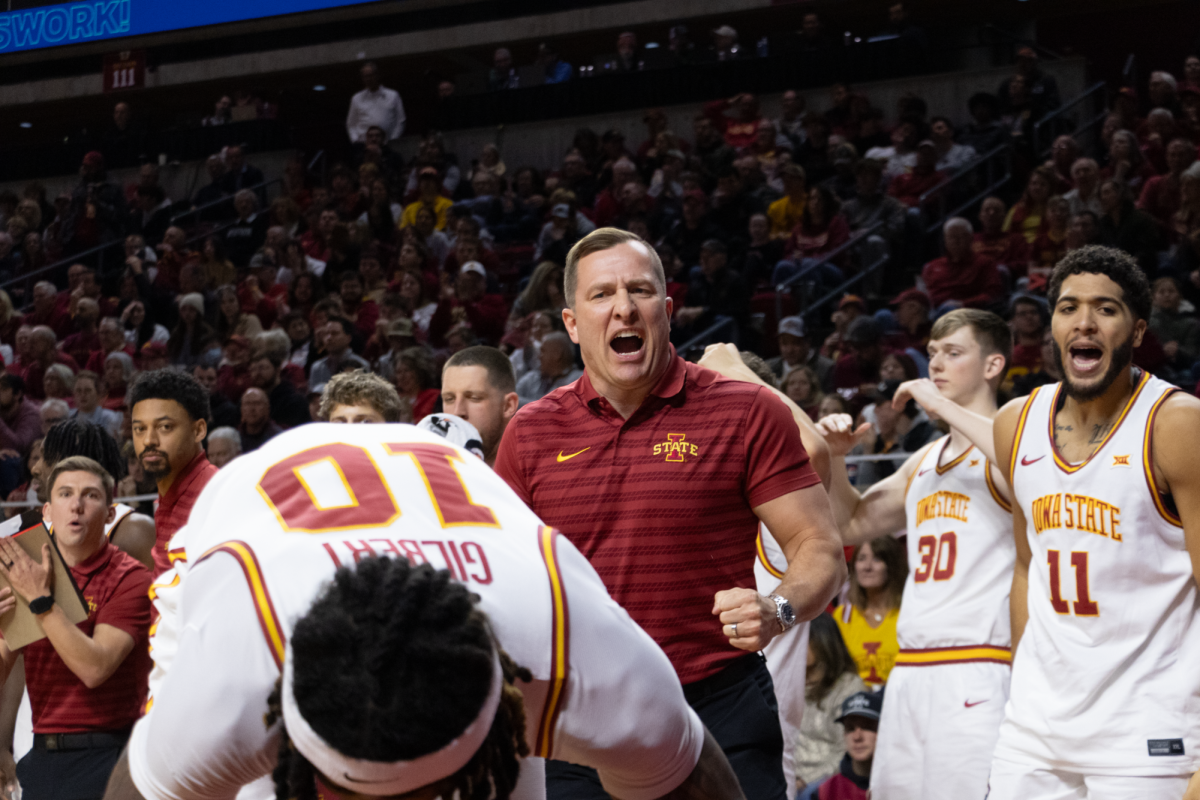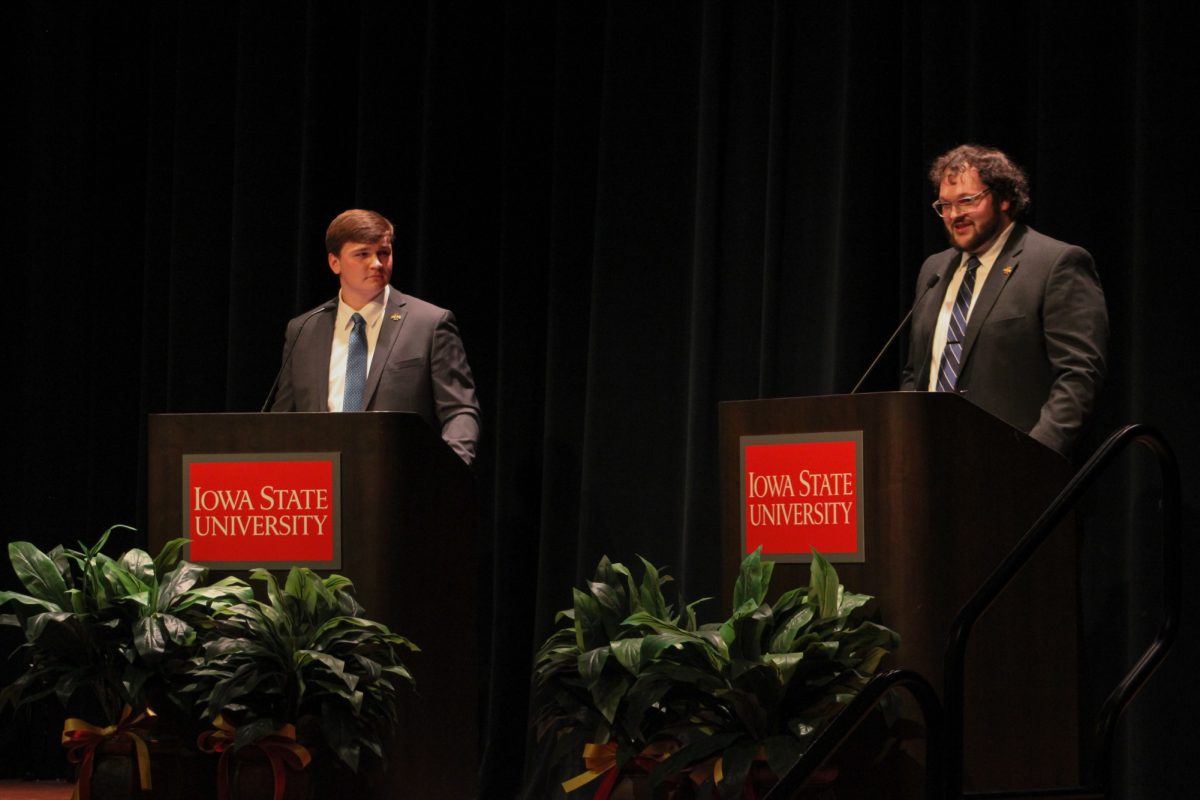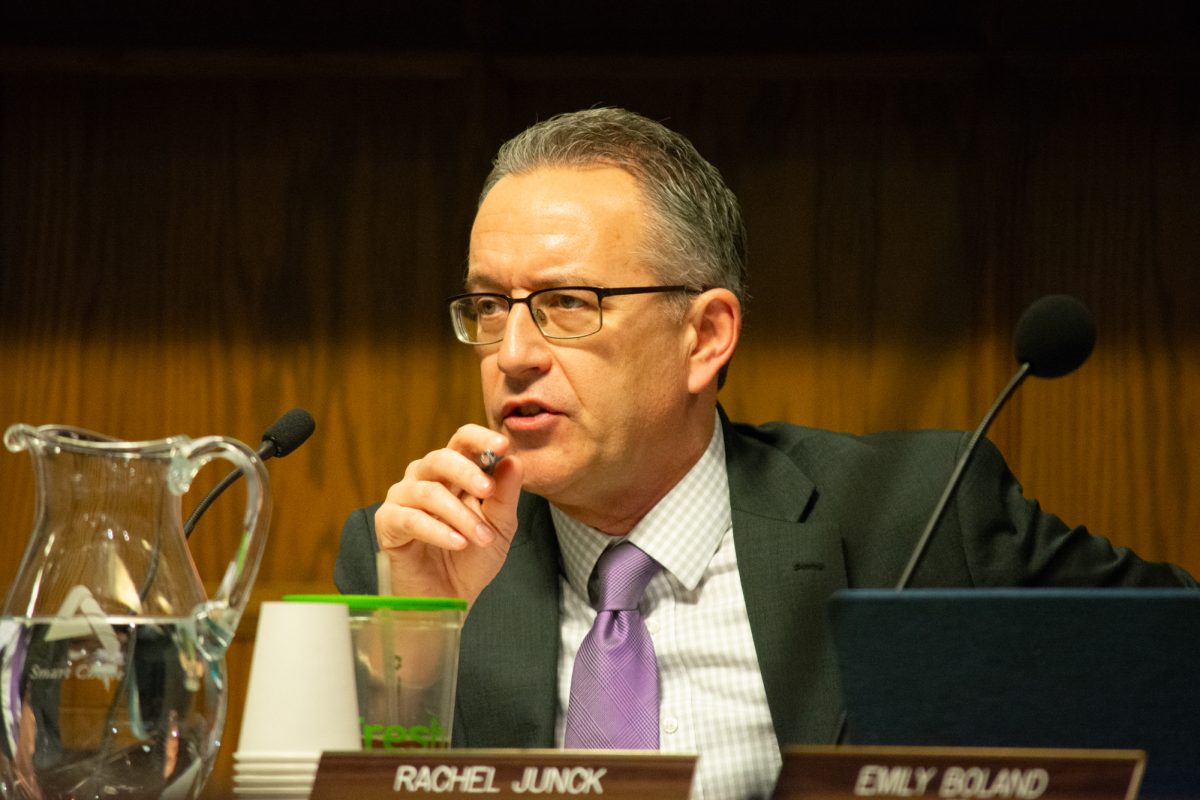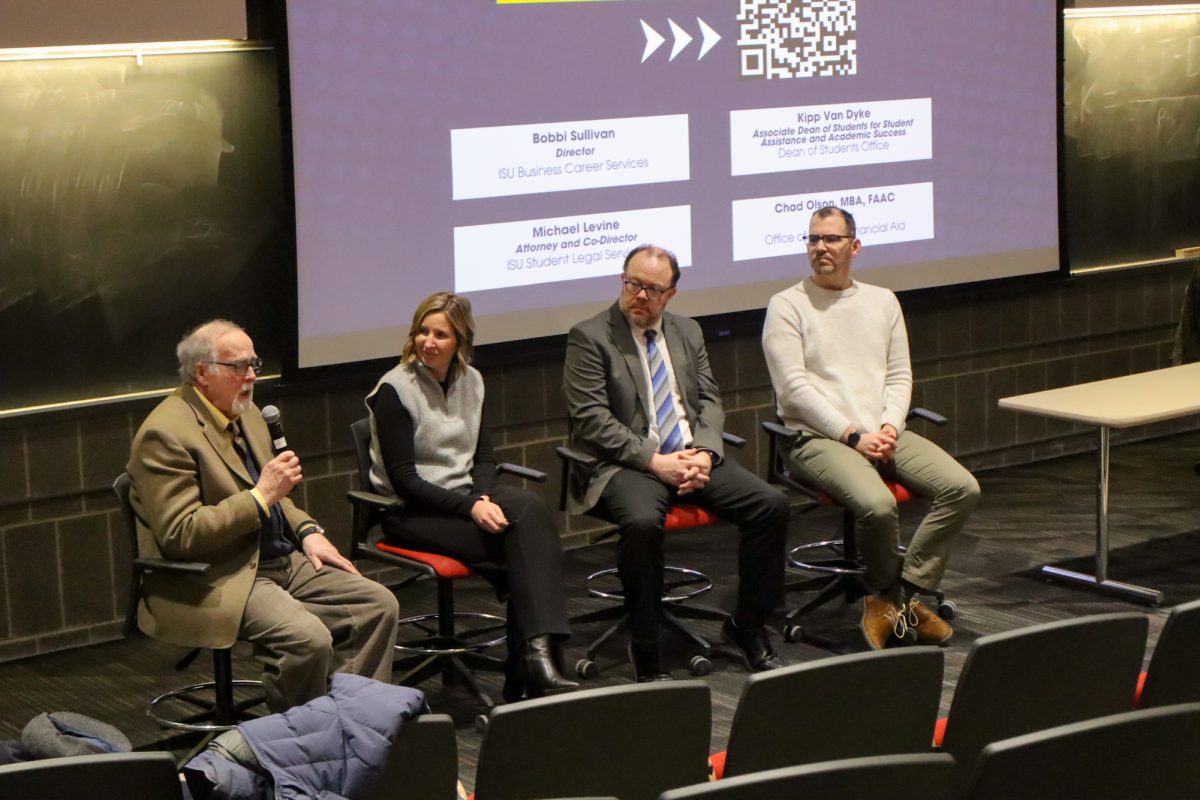Teaching an old horse some new tricks
December 10, 1997
A 10-year-old retired race horse named Monty Python has a second chance in life, thanks to an Iowa State student.
Monty has been transformed from what his previous owners described as mean and aggressive into a horse ready to be adopted by a Michigan family for their 7-year-old daughter.
This gelding has come a long way, thanks to the help of Richard Auwerda, a junior double majoring in animal science and agricultural education.
About five weeks ago, a Standardbred Retirement Foundation representative called Dr. Peggy Miller, associate professor of animal science at ISU, and asked for someone who could evaluate the high-spirited Monty.
The Standardbred Foundation is a clearing house for retired race horses, either those that have aged or those that are no longer fast enough to compete.
Standardbreds were developed by breeding Morgans, thoroughbreds and Tennessee Walkers.
Monty’s owners were afraid Monty was going to hurt someone or hurt one of their other horses because he repeatedly charged and tried to kick them.
Monty’s only hope for survival was to find someone who was willing to work with him and evaluate his problem.
The Foundation contacted several university equine departments hoping for a miracle. If no one was found, Monty Python would be put to sleep.
Earlier this semester, Miller had observed Auwerda’s skills training a 4-year-old stallion in the equine training class. She gave the Foundation Auwerda’s name.
“This stallion had not been handled and was scared to walk outside the barn and very wary of people, and even afraid of his own shadow,” Miller said. “I needed a volunteer to work with him.”
Auwerda said he enjoys a challenge, so he took on the stallion and, according to Miller, quickly won the horse’s trust and respect.
It can now be ridden, and recently the stallion even handled a trail ride fairly well, he said.
Auwerda’s next challenge would be meeting Monty, a horse who, when first retired, went to a home where he nearly starved.
“He learned some bad habits,” Miller said. “He had to compete with other horses for food.”
The next person who adopted Monty said he was very mean and wanted the horse to be put to sleep.
“I was asked to evaluate the horse to see if it needed to be put down,” Auwerda said. “I like a challenge, so I said, ‘Sure.'”
Auwerda had to fill out a foster care form and Monty was shipped to his farm near Boone on Nov. 7, arriving late that night.
Auwerda was told the horse should be kept separate from other horses, and he was warned to leave the halter on or he would never catch Monty again.
That is where Auwerda’s time with Monty began.
His first step was to remove the horse’s halter. He then watched the horse for about an hour and a half.
Monty was across the fence from a 2-year-old stallion.
They sniffed each other, but there was no sign of aggression, Auwerda said.
When Auwerda went out the next morning, both horses were lying as close to each other as they could get with the fence in between.
When he approached Monty, the horse turned and started to kick. Auwerda said it was just a sign of fear, not aggression.
Within a week, Auwerda’s persistence and frequent presence had earned Monty’s respect.
The horse learned he could stand and face Auwerda and nothing bad would happen. Auwerda was then able to approach him and touch him, he said.
The next step Auwerda took was to begin walking him in a circle. Race horses are familiar with the lunging routine, and Monty began to calm down, he said.
Later, Auwerda put Monty in with the stallion.
He has since been ridden by two little girls, and the aggression has not been a problem.
“I really wish he’d been more aggressive,” Auwerda said. “It was really easy. He’s a smart horse.”
Auwerda said other trainers sometimes try fear or try to have the horse learn to move away from pain, but he prefers instilling trust and respect.
“The horse is the best teacher,” Auwerda said.
“You just have to listen, rather than try to teach the horse on our level. It’s all a matter of understanding the horse,” he said.
Auwerda donated his time on behalf of the ISU Agricultural Ed Club as community service.
“Richard gave the horse the chance and demonstrated that it was more a problem of human misbehavior than of the horse itself,” Dr. Miller said.
The Standardbred Retirement Foundation works within the Harness Horse Foundation to find homes for retired race horses.
People go through an adoption procedure at no cost except the future day-to-day care of the horse.
The Midwest division of the Foundation can be reached by calling 1-608-744-7337.






